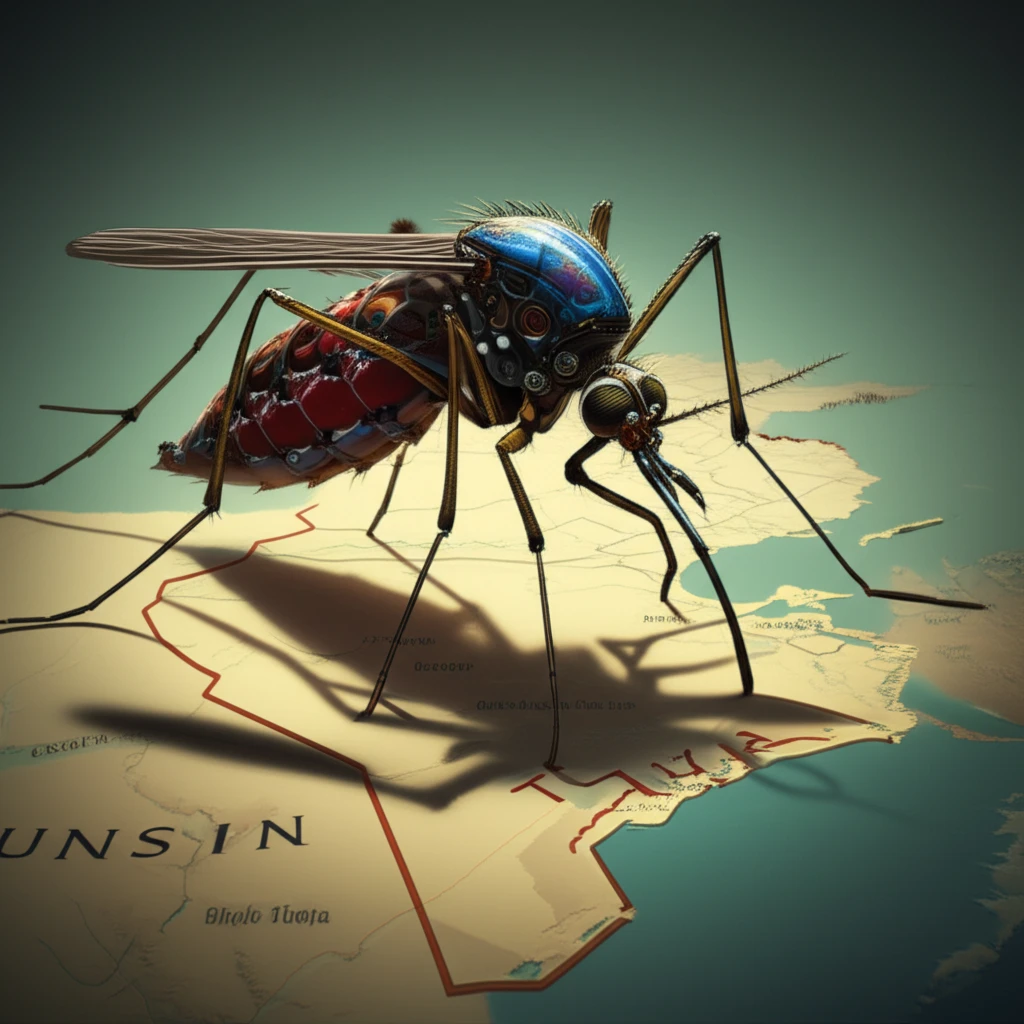
Mosquitoes vs. Humanity: How Insecticide Resistance Could Impact Us All
"New research reveals alarming levels of temephos resistance in Tunisian mosquitoes, signaling a wider threat to public health and global disease control."
For decades, insecticides have been a crucial weapon in the fight against disease-carrying mosquitoes. However, a recent study is sounding the alarm about a growing threat: insecticide resistance. This isn't just a problem in faraway lands; it's a global issue that could impact the health and well-being of communities everywhere.
The research, focused on Anopheles labranchiae mosquitoes in Tunisia, has uncovered unexpectedly high levels of resistance to temephos, a commonly used insecticide. While Anopheles labranchiae might not be a household name, these mosquitoes are known carriers of malaria, a disease that continues to devastate populations worldwide. What's particularly concerning is that this level of resistance is far greater than previously recorded, raising questions about the future effectiveness of our current mosquito control strategies.
But what does this mean for you and me? Insecticide resistance isn't just a scientific curiosity; it's a real-world problem that could lead to a resurgence of mosquito-borne diseases, increased healthcare costs, and a greater strain on public health resources. Let's delve into the details of this research, understand the implications, and explore what can be done to tackle this growing challenge.
Why Should We Worry About Mosquito Resistance?

Mosquitoes might seem like mere summertime nuisances, but they're vectors for some of the world's most devastating diseases. Malaria, Zika virus, dengue fever, and West Nile virus are all transmitted by these tiny insects, causing illness, suffering, and even death for millions each year. For decades, insecticides have been a vital tool in controlling mosquito populations and preventing the spread of these diseases.
- Disease Resurgence: If insecticides no longer work, mosquito populations can explode, leading to a resurgence of diseases like malaria and dengue fever.
- Economic Impact: Outbreaks of mosquito-borne diseases can overwhelm healthcare systems, disrupt economies, and impact tourism.
- Public Health Crisis: Insecticide resistance can undermine public health efforts, making it more difficult and expensive to control mosquito populations and protect communities.
What Can Be Done to Fight Insecticide Resistance?
The rise of insecticide resistance is a complex problem that requires a multi-faceted approach. Here are some key strategies that can help combat this growing threat: <ul> <li><b>Rotate Insecticides</b>: Avoid relying on a single insecticide for too long. Rotating different classes of insecticides can help prevent resistance from developing.</li> <li><b>Use Integrated Vector Management (IVM)</b>: IVM involves combining different control methods, such as insecticides, biological control agents (like larvivorous fish), and environmental management (like draining standing water).</li> <li><b>Develop New Insecticides</b>: Research and development of new insecticides with novel modes of action are crucial for overcoming resistance.</li> <li><b>Improve Surveillance</b>: Ongoing monitoring of insecticide resistance is essential for tracking the spread of resistance and adapting control strategies accordingly.</li> <li><b>Educate Communities</b>: Public awareness campaigns can help educate communities about the importance of responsible insecticide use and other mosquito control measures.</li> </ul> By implementing these strategies, we can slow the spread of insecticide resistance and protect communities from mosquito-borne diseases.
